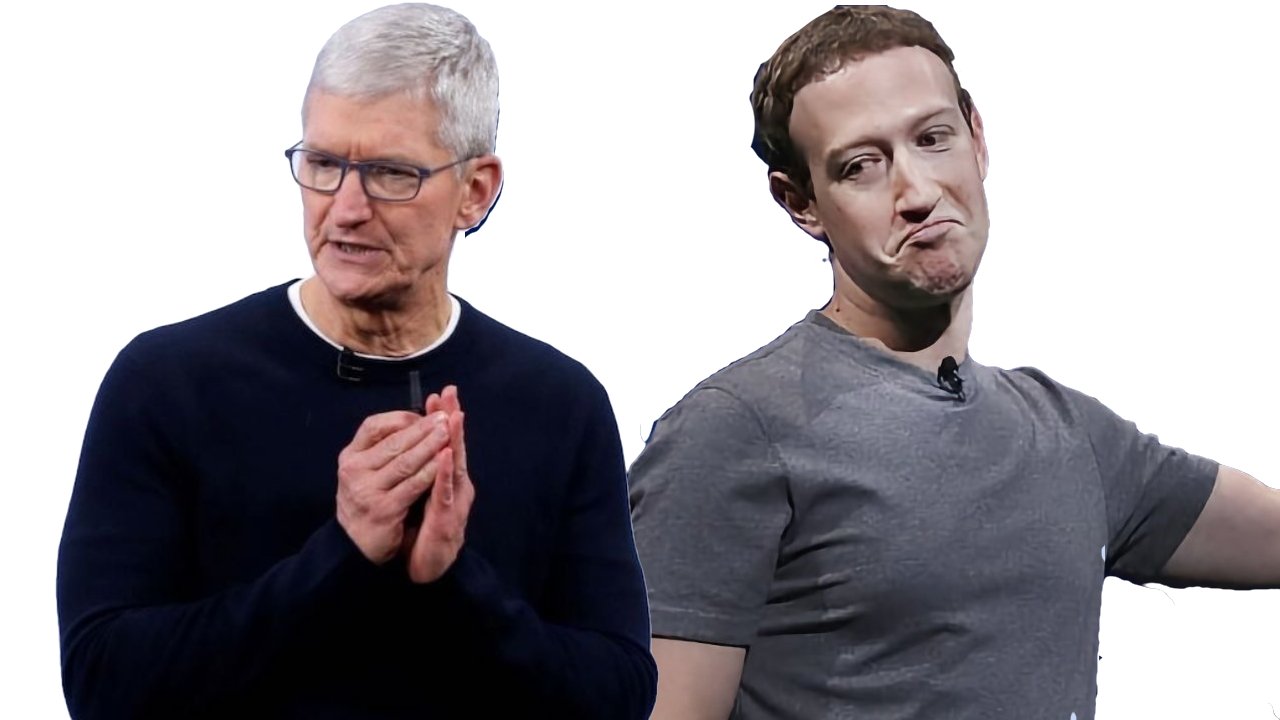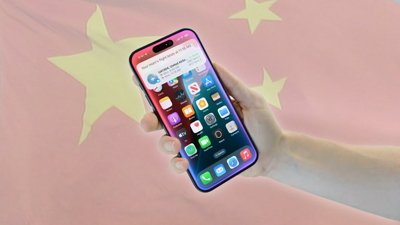While Apple is accusing Meta of trying to use EU laws to abuse privacy, Meta is saying Apple is worse. This is just the latest chapter in a long-running fight between the tech giants.
The latest spat between Apple and Meta, the owner of Facebook, is... pretty much the same as every exchange before. Apple accuses Meta about its privacy record and Meta doesn't exactly deny it, but has a good go at deflecting the attention back.
This time, it's that Apple is questioning the EU's mandate about cooperating with rival firms, by pointing out that Meta has been really trying it on lately. Meta responds by commenting that Apple would say that, wouldn't they?
Yes, they would. Apple's stance on privacy could be the company believing in a basic human right, as it claims, or it could be a solid marketing strategy that differentiates the firm from its rivals.
But Meta's stance on privacy isn't either of these. Meta appears to regard privacy as a revenue stream, and for once you can actually put a figure on that.
It's all very well Apple and others are saying that if a product is free, then actually you are the product. It's all very well that privacy advocates saying that firms like Meta are making money out of us.
But it's when you see how much money is being churned out of the machine, that it becomes real. In 2021, Apple released App Tracking Transparency, which forces users to make a positive choice to agree, or to not agree, that an app can track their usage to report to advertisers.
Sufficient Apple users tapped on the new "Ask App Not to Track" button that Meta was forced to tell its shareholders that revenues would be down $10 billion for the year.
Ten billion. Meta was making ten billion bucks out of us, without our being aware of it.
You can well argue that we should have been conscious of it, not least because Meta's been in hot water over our privacy many, many times. Such as when it had a deal with the controversial Cambridge Analytica, whereby it had access to significant data about up to 87 million Facebook users.
Meta ended up paying $725 million to settle a class-action suit about that. And this was on top of the $5 billion that the FCC fined it for the same issue.
Tim Cook weighed in
Apple sometimes seems quite reluctant to comment on other firms' privacy stance, but CEO Tim Cook did respond forcefully when asked about Meta and Cambridge Analytica. He was specifically asked what he would do if he were Meta CEO Mark Zuckerberg, and said he couldn't answer for the simple reason that if he ran Meta, the firm "wouldn't be in this situation."
"I think the best regulation is no regulation, is self-regulation," Cook continued. "However, I think we're beyond that here."
Zuckerberg didn't take that lying down. "You know, I find that argument, that if you're not paying that somehow we can't care about you, to be extremely glib," he said, "and not at all aligned with the truth."
"But if you want to build a service which is not just serving rich people, then you need to have something that people can afford," Zuckerberg continued. "[At] Facebook, we are squarely in the camp of the companies that work hard to charge you less and provide a free service that everyone can use."
This wasn't some brief row between CEOs, this is a fundamental and continuing difference between the two firms and how they choose to make money. And three years after Zuckerberg's claim to only be ad-supported to help people, Cook again took a shot at him.
Speaking at the European Computers, Privacy and Data Protection Conference conference in 2021, Tim Cook did not name Meta, but there was no question who he was talking about.
"Technology does not need vast troves of personal data stitched together across dozens of websites and apps in order to succeed," he said. "Advertising existed and thrived for decades without it."
"If a business is built on misleading users, on data exploitation, on choices that are no choices at all, then it does not deserve our praise, it deserves reform," he continued. "At a moment of rampant disinformation and conspiracy theories juiced by algorithms, we can no longer turn a blind eye to a theory of technology that says all engagement is good engagement, the longer the better, and all with the goal of collecting as much data as possible."
"Too many are still asking the question, 'How much can we get away with?'," said Cook, "when they need to be asking, 'What are the consequences?'
Apple and Meta's entrenched positions today
If nothing else, Apple has made privacy a talking point. Whether you're cynical about its reasons or not, you can be sure it keeps your data private because failing to do so would be calamitous for Apple.
Being caught selling data to third-parties while saying you don't would damage any firm, and the probable fines would damage most. But while Apple could at least theoretically pay any fine, look at the spotlight that is shone on it even when it's being falsely accused of breaching privacy.
Criticism of Apple is clickbait and everything is a furore — yet for Meta, this privacy stuff doesn't always even make the news. There were few headlines this week when Meta had to pay $32 million to settle a case with Australia's privacy watchdog, for instance.
Or the $263 million it paid — also this week — to settle another privacy case with Ireland's Data Protection Commission.
What happens next
Meta will continue calling out Apple as a deflection. Such as how it has repeatedly blasted the firm for charging developers a 30% fee in the App Store — so that you don't notice it charges them 50%.
Apple will continue touting privacy as a core part of its business, and that will at least more adverts if not more technology developments.
Ultimately, there's the Jerry Maguire solution. If users insist that Apple and Meta "show me the money," then you get Facebook eventually admitting to storing and using swathes of data about you.
Whereas Apple doesn't make money by selling its users' data. You can easily make the point that it doesn't have to, it's making enough money out of us with hardware and services.
But altruistic or marketing-savvy, Apple is on the side of privacy and there is no possibility that Meta could say the same with a straight face.
 William Gallagher
William Gallagher








 Malcolm Owen
Malcolm Owen


 Sponsored Content
Sponsored Content

 Mike Wuerthele
Mike Wuerthele
 Chip Loder
Chip Loder










1 Comment
They have fundamentally different and opposing business models. One sells products that protect peoples privacy (mostly) the other sells people that give a damn about their privacy, as long as it's "free". What do you expect?